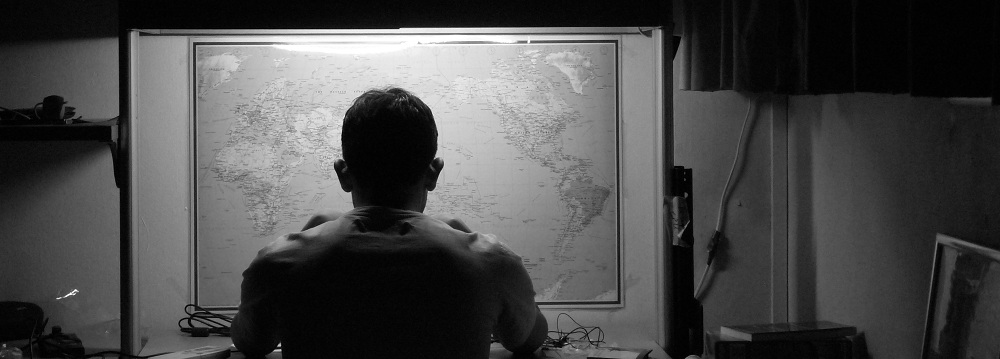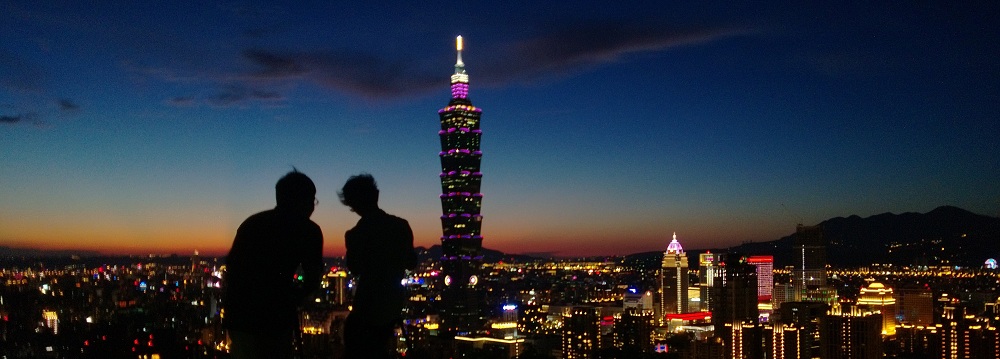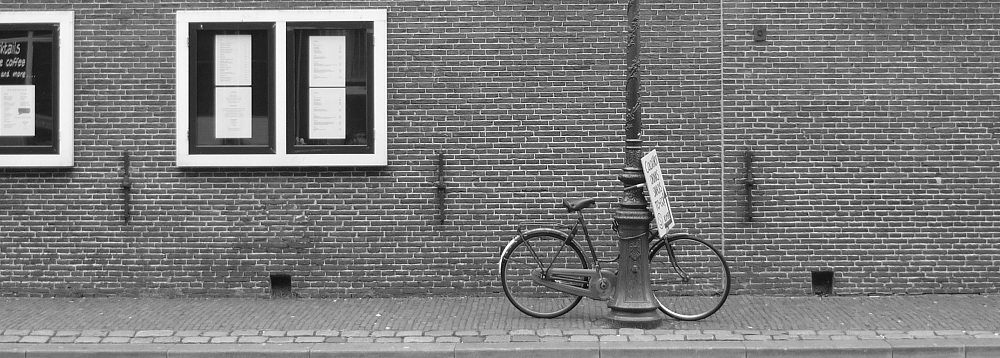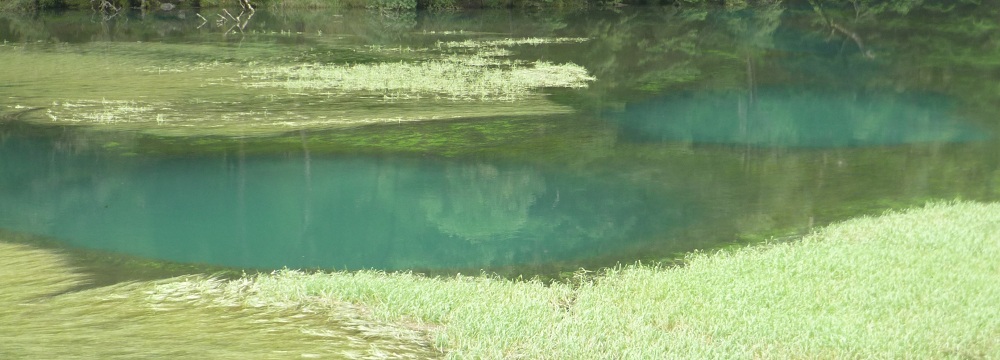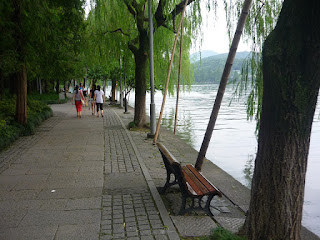I recently made a seventeen days long trip to China. Needless to say it was an adventure of a lifetime. I am writing this blog because before the trip I was daunted by the responses of most of my friends about the discomposing nature of the country. Barring Beijing and Shanghai, hardly anyone can understand English anywhere. China, in more ways than one, truly is an insulated shell which has come up with its own version of almost everything that's a part of globalization, with its own set of regulations and monitoring. Mandarin is relatively harder than other languages and the Chinese characters are very difficult to even copy. And my being a vegetarian made it even harder for me to travel without starving.
It is true that managing on your own in such an alien place will kick your butt out of your comfort zone real hard. But in terms of difficulty the trip was not at all as it was cracked up to be. Once you equip yourself with some basic tools and a certain way of doing things it becomes really easy getting anywhere and doing anything in China. The people are very friendly and talkative. And just like Indians, they are loud and can often get rowdy too, especially while not standing in queues and while driving like Schumacher. Just like us Indians are really curious about China, Chinese are very curious about India too. And China has stunning, gorgeous landscapes and some of the most exotic and beautiful places on earth.
Safety: While some of my friends told me China is not at all a safe place, especially at night, I felt that it pretty much harmless for foreigners. You might be duped by some beverage scam, taken to an overpriced art shop by over-friendly chicks or get your pocket picked, but there is no grave danger for tourists in most places. Probably the touristic places are safer, or, as told by one of my friends, the bad elements find it a bit risky dealing with foreigners. Westerners will find traffic and the crowd quite overwhelming and driving very risky and careless, but I found this chaos very familiar and known. Yet another similarity to India.
Insularity: Information is limited. You can't use Facebook or twitter or Google or Skype. Well, people can open Facebook using VPN, and you can access Google HK but everything is monitored and filtered. But it doesn't end here with Chinese missing out on the most prevalent form of internet usage. What's surprising and commendable is that China has its own version of almost everything. They have got Weibo for Twitter, Baidu for Google and qq for skype. Most people have their email accounts on qq (which is in all_digits@qq.com format) or 126.com. And all these tools are as competitive. I heard that qq has got some really cool features. Baidu is actually a good tool for getting a Chinese character for any English word. All bad news are stamped down whereas good news are over-hyped and sensationalized. Facts are either suppressed or garbled before they are broadcast. I met a girl in Huangshan who told us that some tourists have died while trying to trek some really inaccessible places. The vertical cliffs there with sharp drops leave little scope for leveraging your hungry-for-adventure urges. But nothing goes out. Movies are often banned (The Blue Kite is a good example, not to mention a brilliant movie) and media is often suppressed. In spite of all this, lots of movies, books and first hand accounts of people have made it to international recognition hence people know how it's like in China. Peter Hessler's books on China are a good gauge of daily life in China. Some good movies that I like are To Live (Huozhe), Farewell My Concubine, Raise the Red Laltern, The Blue Kite and The Road Home.
India vs China
This is perhaps the most common question I encountered both in India as well as China. China has gone way ahead of India in terms of infrastructure and growth. The cities are huge, roads are well built, and big cities are mottled with malls, showrooms and essentially tall buildings. I have heard that most of these apartments are empty and unoccupied due to inability of people to buy them. This might probably be true, but it doesn't mean most people there eke out a living sticking to minimal means. People are well off, and signs of prosperity are apparent. Young people are groovy and girls have a good dressing sense. And the best part is in spite of this there is an underlying element of simplicity in people. They don't flaunt wealth as brazenly as other countries that I have visited. Of course Shanghai is a big exception. You take a walk to a place behind the facades of a city and it's the same old story. People in general are talkative, friendly and curious. Streets are dirty but not as much as India. Accommodation is cheap, and food is very cheap. Public toilets are almost always unusable. Public transport is just buses (and metros in big cities). They have an obsession with announcement systems. All buses are fitted with loudspeakers into which some lady will shout out something mercilessly before every stop. There is no counterpart of tempos that we have in India. Signs of seedy places can occasionally be seen. People are really fond of singing, karaoke and smoking. You can spot a group of old ladies dancing to hip hop music in parks in morning or evening. People's park in Chengdu is full of such activities. Certain sights are uncommon and amusing. Like in Chengdu I saw all employees of a restaurant dancing together in uniform just outside the place where they worked. People are not very happy with their government but don't express it very openly. What stinks is people peeing on the roadside and incessant spitting. While both these things happen in India too, the spitting thing gets really cruddy in China. And people are really curious about India too. China has gone way ahead of India in many terms but India is still seen as a rival by most Chinese people. The ubiquitous 'IT' brand of India is known to Chinese too, but they don't use it in disparaging manner as most people do. Another thing good about this country is the state of women. They are safe. They work in all professions, dress freely and are not raped for doing so. Raping for a cause is a birthright of Indian guys only.
Food
I will talk only about vegetarian food. I will comment about food in each place I went to. In Chengdu the youth hostel I stayed in had a vegetarian menu with wide range of items. There at the reception I requested one guy to write in Chinese for me ' I am a vegetarian, I don't eat meat'. That must have been the most important piece of paper I held in my hand throughout my trip in China! I would show it in any food shop I stepped in and someone would then point out to me the veg items they had. At one place in Jiuzhaigou, a lady sent her little daughter to get some toufu for me as she had nothing veg - but she didn't say no to me and drive me out. I had tons of toufu with rice that night. There is also a place just outside the gate of national park which sells potato puffs. Grilled potatoes are a common sight in Sichuan but I didn't find them very tasty. In Sichuan one should also try the local spicy noodles. Veg options are available. In Beijing, the problem is cheap places don't have menus in English so it's difficult to try them out. But being a capital it has all global food chains like Thai Express, Starbucks, Subway and so on. In Shanghai I found a buddhist vegetarian restaurant and an Indian place too so getting veg food was not an issue there. In Tunxi, there was a brilliant place bang opposite my hostel that had some really tasty veg options. At another place the guy agreed to replace meat with vegetables while preparing some sort of pancake for me. Hangzhou had two Indian restaurants within walking distance so I didn't even try Chinese food there. What's important is to know how to use chopsticks! And Chinese food in general is very oily.
Seeking help: If you want to ask someone for help, look for someone young. Old people are not so open and comfortable talking to foreigners. Plus I rarely found them speaking or understanding English. As I have stated this before too, almost everyone is really helpful and some people will even go out of their way to help you. At Beijing domestic airport a lady asked me to come with her to the subway. The person sitting beside her had agreed to give her a free ride to nearest subway from the airport and then I jumped in too. She figured out everything for me, bought me tickets and refused to accept money as it was just a small amount.
Language: You can just about manage visiting well known places and getting to youth hostels without knowing any Chinese. But in the event of any miscalculation or unexpected occurrence, let me tell you, you will be in deep deep trouble if you can't speak Chinese. If you learn to speak a few sentences life will become a lot easier for you. Learning greetings and introductions won't help much. I met a couple from America/Canada who had been living in China for over a year. They could speak only basic phrases, and the guy taught me some phrases most important and most frequently used in daily life. Here's a summary of what I deemed most important from my own as well as others' experiences - you should be able to introduce yourself, ask name of the other person, ask where the toilet is, how much does something cost, able to count in Chinese, ask for directions, give directions (if you are sitting in a cab, don't know the name of the place but know how to get there - trust me such a situation will come across), compliment, say 'it's expensive' in Chinese, name a few dishes, ask for a bottle of water, say no/don't want etc, ask 'Can you speak English/Chinese/any other language', ask whether a place is near or far and most importantly remember the name and street of the place you are staying at so in case everything fails you can take a cab back home. If you can count in Chinese, you can tell time, no of days, days of week and name of months too. Also Chinese have hand gestures for one to ten, that's also very useful. I could very easily go anywhere with the above skill-set AND Chinese address of the place I was going to (esp when that place wasn't very famous).
Traveling: Now matter how you travel, you can get any ticket at the reception of your youth hostel (with a very small service fee). There are offices dedicated to selling tickets but the personnel there can only speak Chinese so you can't ask them a lot of questions. There's only one instance when I bought a ticket from outside the hostel. Talking about the quality of transport the public buses are slightly dirty and not so comfortable but from what I heard from fellow travelers, the trains are decent. I tried the super-fast train from Beijing to Shanghai and that was four hours of pure awesomeness. It's top speed is 303 kmph, seats are comfortable, announcement is in English and Chinese, and it's very well kept. In big cities like Chengdu, Beijing, Shanghai, Hangzhou you don't have to haggle for the price with the cab driver. If you get the right cab, it will come with a meter. But I found it really really difficult to get a cab in Chengdu. It's easy in other places. It's better to buy train tickets a few days beforehand as they get sold very soon. Just because I couldn't get a train ticket to Xian I had to skip the place and fly directly to Beijing.
Site specific tips:
Huangshan: People visiting this place have two choices to stay at - Tunxi (the touristy hotspot) which is about 100 kms from Huangshan mountain base, and Tangkou which is situated very near to the mountains. Most people spend at least one night in the mountains. We didn't do that as the weather was bad, and when we reached Tangkou at about 7pm, it was totally dead. There was no vehicle running to take us to Tunxi. In the end the bus driver called us a cab who took us to Tunxi.
So if you stay at Tunxi, plan to descend as early as possible. Laojie (Old Street) in Tunxi is very beautiful and looks very ancient. Another thing - Huangshan has two entrances - East and West. West entrance is longer, harder but more beautiful. East entrance is shorter but crappy. Most people take East entrance due to ease of climbing. So it's heavily crowded with tons of people plodding through a not-so-beautiful landscape. I did the same thing and I regretted it.
West part is stunning! Even if it takes longer from there, you don't have to fight the crowd and the views are breath-taking. It is totally worth it.
Chengdu: It's a good city and a good hopping point to other places, but there's nothing spectacular to see here except for pandas. And I found it very very hard to get cabs in the city. So try to rely on public transport as much as you can. The upcoming subway there should make things easier. Food is quite spicy and tasty!
Hangzhou: The well known West Lake (Xi Hu) is beautiful indeed, but over-hyped. It is a nice lake with good views, paved walkways decorated with willows lined along, small ponds and green lawns. But it certainly is not heaven on earth as the sites and books claim. The city in itself is quite nice. It boasts of being the happiest city in China, is well developed particularly near the West Lake and is well connected to Shanghai (via superfast train) and Tunxi. Xi Hu is the biggest attraction of this city with other venues (like silk market) nothing more than incidental contrivances to attract the incoming tourists.
